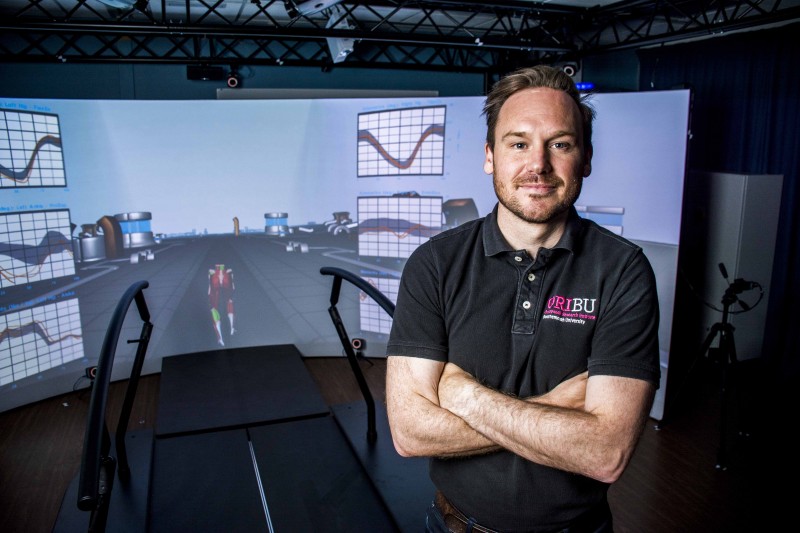Open the doors to the Orthopaedic Research Institute at Bournemouth University, and you’re greeted by a vast array of state-of-the-art equipment.
From the GRAIL lab, a gait analysis facility that can examine the way people move after surgery, to virtual reality surgical simulators – this equipment, and the expertise and research of those who work there, is making a real difference to the lives and recovery of patients.
“Our work is underpinned by good science, so it’s not just about implementing technology and innovation for the sake of it,” says Tom Wainwright, Associate Professor in Orthopaedics and Deputy Head of the Orthopaedic Research Institute (ORI)
“World-class research comes from this equipment and the answers it enables. When new surgery techniques are tried, we need something that tells us sensitively and specifically whether these have been successful, and that is what the GAIT laboratory allows us to do in a very accurate way.”
ORI was established nearly three years ago, and since then has forged close links with healthcare institutions and organisations both locally and internationally.
Current projects range from undertaking the world’s first in-depth analysis into the potential benefits of using robotic-assisted technology in hip replacements, to a cycling programme to relieve the pain and symptoms of osteoarthritis in the hip.
“If a surgery is required for osteoarthritis of the hip or other joints, then we would like to do this in the best way possible, but surgery has risks – the best way to treat someone is perhaps not via surgery but, for example, using our CHAIN programme, which is cycling against hip pain,” explains Tom.
“The programme aims to get people with osteoarthritis of the hip exercising in a specific way with cycling, which is really good for the hip, is non-impact and has high revolutions per minute.
“Patients are finding that they are experiencing pain relief, increased function in walking, reduction of analgesia medicines, better sleeping, and weight loss, so in some cases it’s completely changing people’s lives.”
The project is currently being expanded locally, in conjunction with Royal Bournemouth Hospital, and has also recently received a £350,000 grant from the National Institute for Health Research (NIHR) to run a multi-centre trial that will evaluate the CHAIN programme against normal physiotherapy care.
“ORI is pretty unique in that we have really close links with local hospitals but also an international profile for our work in orthopaedics,” said Tom.
“It really is an area where we are fusing professional practice and applied research. Since setting up the Institute nearly three years ago, the facilities, infrastructure, collaborations and working relationships have been growing year upon year.
“In terms of research impact, we are putting this into practice locally but we’ve also got people nationally and internationally wanting to replicate this and use our system.”
The Institute also collaborates internally as well as externally, with projects spanning across a broad range of subjects and disciplines.
“We collaborate with academics from across the university, including areas like physiotherapy and computer animation, where a PhD animation student is looking at virtual surgical training in hip replacement,” said Tom.
“We currently also have a project with toxicology students to analyse samples of tissue from hospital patients to see how far non-steroidal creams are penetrating into hip joints, and how well these are working.
“There’s a real breadth to our work, with the aim of bringing expertise to solve real-world clinical problems.”
Visit the Orthopaedic Research Institute website for more information.
